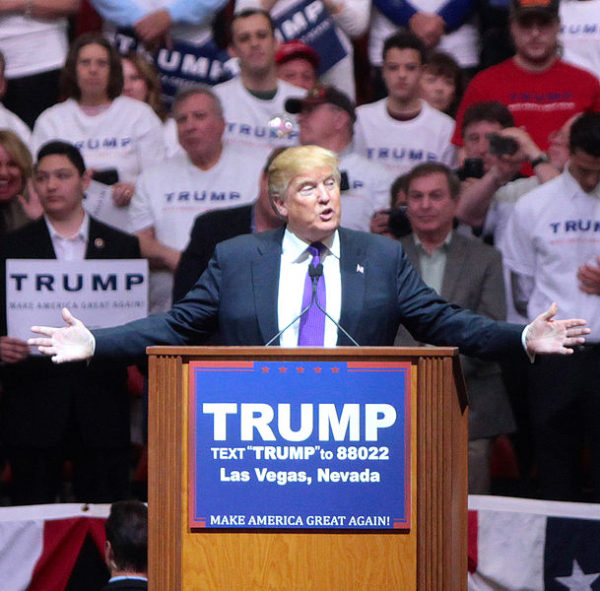Nearly two years after his widely unexpected victory in the U.S. presidential election, one may be forgiven for wondering how Republican Donald Trump managed to defeat his much better qualified Democratic opponent, Hillary Clinton.
Clinton, after all, had excellent credentials.
She had been the American secretary of state for four years. And she had learned the art of politics from her husband, Bill, who had been in the White House for eight years. In addition, her party was fully behind her.
As Jim Stern points out in his informative documentary, American Chaos, which opens in Toronto on October 12, Trump labored under a distinct disadvantage. He was 70-years-old, supposedly ready for retirement. And he had no political and military experience whatsoever. Furthermore, he had virtually hijacked his party in what amounted to a hostile takeover.

Stern, a self-described “political junkie,” wants to know why Trump trounced Clinton. In his quest to find answers, he travels around the country, focusing his attention on three states — Florida, West Virginia and Arizona — where Trump triumphed.
A staunch Democrat whose brother held a high post in the Obama administration, Stern talked to a wide variety of Americans to take the pulse of the country. He interviewed them several months before the election. As he learned what was on their minds, he came to the conclusion that Trump would win and succeed Barack Obama as the next president of the United States, even as the august New York Times insisted that Clinton had a 90 percent chance of winning.
So much for the accuracy of polls!
The key to Trump’s victory was his portrayal of himself as a person who could fix the nation’s problems and, as he reiterated time and time again, “make America great again.” As Stern discovered, Americans were weary of politicians who could be bought and sold. They were worried about jobs and illegal immigration. They felt their voices were not being heard by the powers-that-be.
Trump, a real estate mogul from New York, presented himself as the underdog despite his billionaire status. He tapped into voters’ grievances and gave them the impression he fully understood them and could lift them up from despair. He was particularly effective in reaching out to disaffected white voters who constantly referenced America’s mythic past. He appealed to blue-collar Democrats, who believed their future was imperilled by outsourcing.
Importantly enough, he said what a lot of Americans were thinking.

As a grizzled rancher in Arizona tells Stern, Trump was the only candidate who stood up for his beliefs, whether he was right or wrong. Clinton was regarded in a much less favorable light. A woman from Queens, New York, describes her as a “felon with a pants suit.” Still others think she’s an elitist who doesn’t understand the concerns of ordinary Americans, or is capable of defending the country.

Stern thinks she made a terrible strategic blunder by decrying Trump’s red-state supporters as “deplorables.”
Obama, the first African-American president, is faulted for having “torn down” the armed forces and the police. And there is resentment that he tried to close coal mines, notwithstanding the fact that many jobs in that industry have been lost to automation, as Stern points out.
Trump, in short, capitalized on deep dissatisfaction with the state of the union. His understanding of America’s mood gave him the edge he needed to beat Clinton in an historic upset.